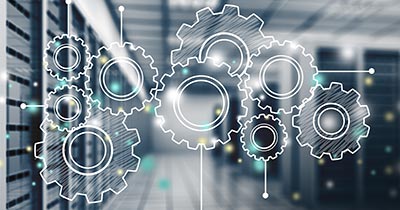If you’ve been researching ERP software options and the different vendors out there, it’s likely you’ve come across NetSuite. But with so many ERP systems out there, why choose NetSuite ERP as software to help you improve business performance and drive profitability?
What is NetSuite?
NetSuite is the world’s largest cloud ERP software vendor, so to say it’s a big deal would be an understatement. The ERP system is a true, single-source solution. NetSuite doesn’t just handle one part of your business, like your financials and accounting or only the sales and CRM activity. It’s business management software designed to bring together all core business functions and leverage the benefits of single-source data. But more on this later…
See our quick video explainer, for a concise 2-minute overview.
A brief history of NetSuite
NetSuite was founded back in 1998. Coincidentally, that’s the same year Google was established. If you remember when Google first came onto the scene, it was a time of global technology infancy, relatively speaking. Search engines weren’t that smart (nowhere near the machine learning and AI assisted functionality we see now). The internet was also fairly slow and we were used to hearing that screeching sound of 56K modems on a daily basis.
At this time, NetSuite was looking to the future. It dedicated its operations to delivering business applications over the internet. Some people even credit NetSuite as a pioneer of the cloud computing revolution. It’s from these origins that the company has drawn strength in today’s competitive cloud-computing space.
Unlike other vendors, NetSuite didn’t start off as a desktop application or as on-premise software that needed to be installed on local servers. It was created as a purely cloud-based system. So, when cloud software was becoming the next big thing, NetSuite had no catching up to do. Instead, it was setting the scene, based on decades of experience as an established cloud solution provider.
The cloud-first strategy paid off. Today, NetSuite ERP software is used by over 40,000 organizations worldwide and is a global cloud ERP platform that continues to improve and expand, year on year.
“When cloud software was becoming the next big thing, NetSuite had no catching up to do. Instead, it was setting the scene, based on decades of experience as an established cloud solution provider.”
What does NetSuite have over other cloud ERP systems?


Considering NetSuite was created during the era of dial-up internet, it’s not surprising its ecosystem was built for speed, right from the start. Slow internet speeds may be a challenge for many cloud services such as media-streaming and content services, but not for NetSuite ERP software.
Running large reports on-demand and running automated updates has been a reality for NetSuite users right from the start. Even on a mobile connection, the system remains responsive and keeps up with intensive demands.
Reliable data centres
Creating a stable platform for tens of thousands of customers isn’t to be taken lightly. Some ERP vendors coming into the cloud ERP market use 3rd party data centres – likely due to the sheer size and investment of server equipment needed to maintain good performance. NetSuite, however, has been continuously maintaining and building its infrastructure, right from the beginning.
NetSuite has a total of 6 data centres throughout the USA and Europe. All of NetSuite’s data centres feature advanced architecture with data backup and redundancy, disaster recovery, and failover capabilities. All these data safety measures working together have seen NetSuite consistently meet a 99.98% service uptime to its customers, globally. Find out more about NetSuite’s data centre capabilities.
NetSuite “talks” to other systems
NetSuite’s ERP platform uses an open API. This allows communication between other systems to import additional data, automatically update information from outside NetSuite, and more. If you ever need to integrate with another industry-specific application, it’s possible. Your data can be brought into NetSuite using the API infrastructure. There’s no manual keying or additional human effort needed.
Why is data redundancy important?
When you have all your business data hosted outside your office, you want to be sure about the safety of that data, should anything ever happen. NetSuite addresses this by having full data mirroring to off-site locations in place. This means if there’s ever an emergency or natural disaster, all your important business data resides safely in a separate location – unaffected by what’s happened and readily available.
NetSuite’s ERP software also employs multiple levels of data redundancy, which means there are a number of redundant systems ready to take over in the event of hardware failure.
The result is zero interruption to customers. All these data safety measures working together have seen NetSuite consistently meet a 99.98% service up-time to its customers, globally. If you’re considering an ERP vendor that uses 3rd party data centres instead of their own services, it’s important to ask a few questions to get a better understanding of where your data is being kept and the security measures in place that will be keeping your data safe.
“All these data safety measures working together have seen NetSuite consistently meet a 99.98% service up-time to its customers, globally.”
Who owns your data?
It’s a question many people have with cloud software platforms – who owns the data when it comes to cloud solutions? For NetSuite, that’s easily answered. You retain ownership of your data. You license the platform on which your data is stored, but the data always remains yours. It’s that simple.
What about cloud security?


What makes the real difference is the software application security and hardware security measures that are used.
NetSuite ERP has application security that includes Custom Attribute encryption, IP address restriction functionality, strong password policies, two-factor authentication for privileged roles, security alerts on any failed password attempts, role-level access controls and idle disconnection that keeps your data safe if users forget to log out of the system.
On the hardware side, JCurve ERP uses NetSuite’s data centres which all exist on fully guarded premises with 24/7 monitoring and CCTV surveillance. There’s also a dedicated, global security team keeping constant checks, along with multiple levels of security for physical access to all data centre locations.
NetSuite’s application and hardware security meets the highest standards. Could you achieve the same levels of security by using locally-stored servers on your own premises, as many on-premise ERP solutions require?
A cloud ERP solution is a mobile solution
Have you ever arrived home after a long day, received a text message about an urgent customer issue, and then spent the next half-hour calling sales reps to understand the background information?
With a cloud-based system that’s securely accessible by desktop, laptop, tablet or phone, and provides real-time, single-source data, getting a handle on the situation is fast and efficient. Whether you’re in the office, at home, or waiting for a flight, you can stay informed and stay in control.
With all information stored and tracked within one platform, you have a full history of interactions with every customer, sales transactions, calendar appointments, reminders, scheduled meetings, and more.
Using a single platform, sales reps out on the road also become more empowered. They can provide customers with live updates on product and stock information, access a full history of customer orders and invoices, and provide a much better customer experience.
“With a cloud-based system that’s securely accessible by desktop, laptop, tablet or phone, and provides real-time, single-source data, getting a handle on the situation is fast and efficient.”
A single-source solution


Some providers refer to their software as an “ERP system” without it being the whole truth. An ERP (Enterprise Resource Planning) manages all core functionality within the one platform.
It’s not just a financial system with inventory bolted on or a sales and marketing system with CRM functionality. ERP is your single-source solution for all core business data and functionality.
NetSuite provides a full ERP business software suite, managing everything including accounting and financials, sales and marketing, CRM, inventory, eCommerce, support management, and more. And the real benefits become apparent when using single-source data across the entire business.
You no longer have to question which system has the most accurate or up-to-date data when pulling reporting together.
Gaining business intelligence and insights also becomes much simpler. If you want to know which slow-moving products to target in marketing activities, or how improved stock turn strategies have affected an increase in sales, rely on single-source data to get quick, accurate reporting within the one software platform.
Single-source data also goes a long way to improving the customer experience. Regardless of whether it’s a customer service rep, a sales rep or your accounts department that last spoke with your customer, everything is recorded in the one system.
No matter who answers the phone, your business always provides consistent information to your customers. Over time, that builds trust, respect and customer loyalty.
Is NetSuite right for your business?
You may think of NetSuite software as a solution for larger, enterprise-level businesses. And while it excels at supporting these business’ complex requirements, it’s also a platform which SMEs and growing companies can implement simply and quickly with the right approach. NetSuite’s SuiteSuccess Starter edition is perfect for getting set up with an ERP system and reaping the benefits fast.
JCurve ERP is also an exclusive small business edition of NetSuite available to the Australian and New Zealand market for up to 20 users. Just like the SuiteSuccess Starter edition, JCurve ERP gives SMEs and growing businesses a reasonable entry point to enterprise-level software and supports continued business growth. When the 20-user limit is reached, companies can move up to a NetSuite edition with a simple licensing update.
There’s no re-implementation needed and no downtime. The same platform you started with becomes your enterprise software platform. For larger organisations, NetSuite has industry-specific solutions such as Manufacturing, Services, and Wholesale Distribution which offer customised implementations focusing on functionality important to those organisations.
“While NetSuite excels at supporting enterprise-level business’ complex requirements, it’s also a platform which SMEs and growing companies can implement simply and quickly with the right approach. NetSuite’s SuiteSuccess Starter edition is perfect for getting set up with an ERP system and reaping the benefits fast.”
Where to start?
A cloud ERP system is an important investment. You’ll want to talk to a provider who has considerable experience behind them, the right business process understanding, and the best implementation methodologies to maximise the value from your investment. Jcurve has managed over 600 cloud ERP implementations.
JCS is NetSuite’s leading partner globally by customer count, servicing Australia, New Zealand and the entire Asia-Pacific region. With a multi-national team of experts across APAC covering implementation, account management, NetSuite training and ongoing support, JCS is the cloud solution provider that companies are choosing to drive greater success. Get your tailored demo to see how a NetSuite solution can help your business see lasting success.









